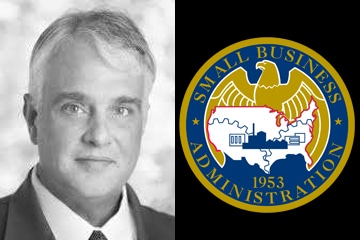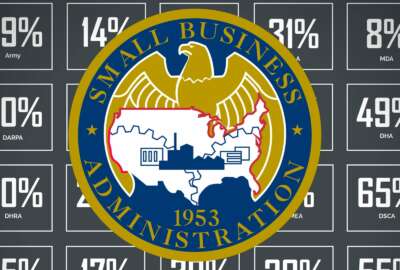
SBA looks to tighten up certification process for women-owned small businesses
Following a 2015 mandate from Congress, SBA will end its self-certification process for women-owned small businesses on October 15. This comes after the agency’s...
Women-owned small businesses, take note: The Small Business Administration is changing the certification process for doing business with the federal government.
Following a 2015 mandate from Congress, SBA will end its self-certification process for women-owned small businesses on Oct. 15. This comes after the agency’s inspector general found contract awards were going to vendors that didn’t meet the criteria for the program.
Business owners since last Wednesday have been able to submit their applications through the online platform, but SBA will only begin issuing decisions on those submitted applications on Oct. 15, the last day of the self-certification process.
Alisa Sheard, a program manager in SBA Women’s Contracting Office, said businesses already certified through the WOSB program must also go through the new certification process, requiring business owners to copy information found on their SAM.gov profile and transfer it to SBA’s online certification platform.
“Everyone will still need to submit answers to questions and upload documents because there’s no data migration. Those documents that were in the different system are not in this beta certified system, so they will have to upload all of those documents,” Sheard said in an interview.
While the certification process is new, the web platform has been around for a few years. SBA launched the platform when it moved the self-certification process online in 2016.
“It was established to improve the customer experience and allowed firms to have a smoother process with applying for the former certification process,” Sheard said.
The year prior, Congress included language in the 2015 National Defense Authorization Act that would require SBA to end the self-certification for women-owned small businesses.
The website includes an eligibility tool that helps business owners determine whether they meet the program requirements. Sheard said SBA is also strengthening its oversight of the program and “maintaining our integrity of the certification process.”
Once the WOSB program changes fully go into effect, the service-disabled, veteran-owned business program will be the only one that will still offer self-certification.
Other contracting programs, such as the 8(a) Business Development and HUBZone programs had their certification requirements written into the authorizing legislation.
The WOSB certification requirements in the 2015 NDAA now mirror what the HUBZone program has established — a three-year recertification process and a 90-day timeframe to reapply if a business owner’s application is declined. Sheard said SBA also expects to process applications in about the same period of time.
There’s still another way to become WOSB certified. SBA has given third-party certification authority to four organizations:
- El Paso Hispanic Chamber of Commerce,
- National Women Business Owners Corporation,
- U.S. Women’s Chamber of Commerce, and
- Women’s Business Enterprise National Council.
However, these third-party groups charge for the WOSB certification, and the SBA process remains free. Asked if SBA has plans to authorize more third-party certifiers, Sheard said the agency “is evaluating the current certification capacity of our agency as well as our third-party certifiers.”
“If we deem it beneficial to the program to authorize additional new third party certifiers, we will announce a solicitation for those interested organizations,” she added.
Agencies last year exceeded SBA’s governmentwide small business contracting goal for the sixth year in a row and spent more than $120 billion on small-business contracts. Agencies awarded 25% of their contract spending to small businesses in fiscal 2018 and earned an overall ‘A’ rating on SBA’s annual small business scorecard.
Despite exceeding these benchmarks, agencies have fallen just shy of the goal to have 5% of prime contracts go to women-owned small businesses.
To ensure that agencies meet that goal this year and in subsequent years, SBA holds monthly meetings with officials from the 24 Chief Financial Officers Act agencies to share best practices that their small business offices have implemented in order to work to achieve the WOSB goal and other benchmarks.
To help spread awareness about the certification change, SBA has launched its “WOSB Ready Campaign,” which Sheard said will ensure that women-owned small businesses aren’t just eligible, but ready to compete in the federal marketplace.
Since 2013, SBA has partnered with American Express on the ChallengeHER program, which promotes the agency’s certification programs, helps women navigate the federal marketplace and helps them grow their small business. Since the program launched, more than 22,000 women entrepreneurs have participated.
Copyright © 2025 Federal News Network. All rights reserved. This website is not intended for users located within the European Economic Area.
Jory Heckman is a reporter at Federal News Network covering U.S. Postal Service, IRS, big data and technology issues.
Follow @jheckmanWFED
Related Stories





